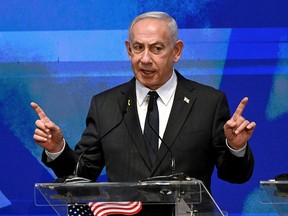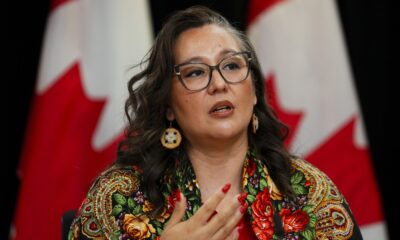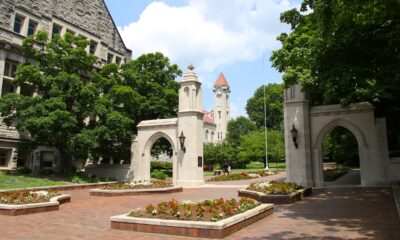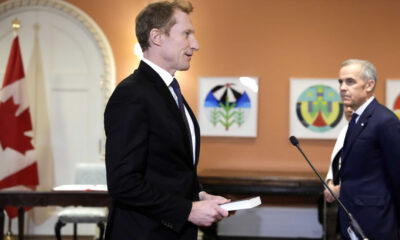Politics
Community Leaders Condemn Carney’s Palestinian Statehood Recognition
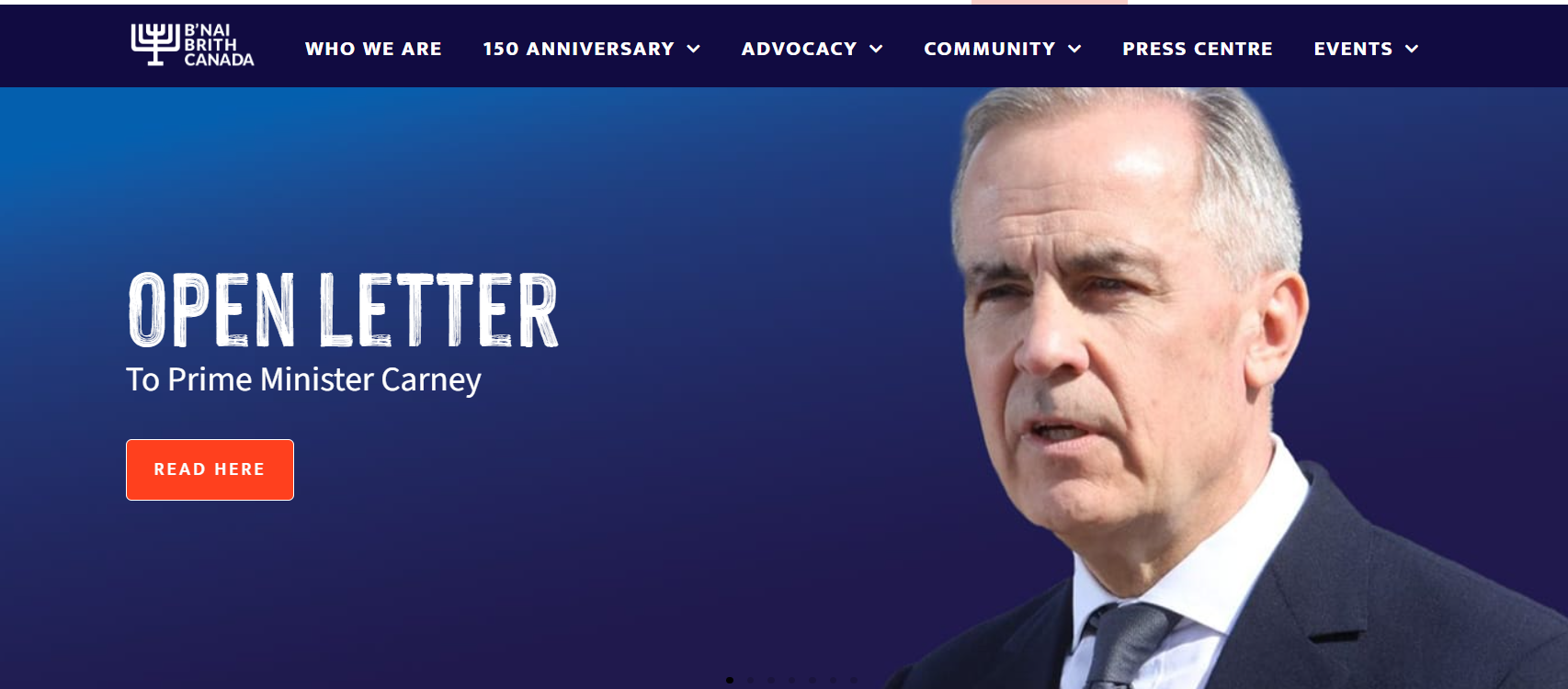
The Canadian government’s recent decision to recognize Palestinian statehood unilaterally has sparked significant backlash from various community leaders and organizations. This shift, announced on July 30, 2025, marks a departure from Canada’s longstanding policy, which emphasized recognition based on prior negotiations between Israel and the Palestinian Authority. Critics argue that this move rewards Hamas and fuels antisemitism, despite Prime Minister Mark Carney‘s assertion that conditions for recognition will be discussed at the upcoming 80th session of the United Nations General Assembly.
Among the organizations voicing their concerns is B’nai Brith Canada, which has issued a letter to Carney signed by prominent figures from diverse political and community backgrounds. This includes broadcasters, rabbis, former cabinet ministers, and business leaders. The organization characterized the move as a “dangerous and highly premature foreign policy blunder,” warning that it could embarrass Canada and exacerbate the ongoing crisis in the Middle East. Judy Foldes, chief operating officer of B’nai Brith, emphasized that the policy might undermine efforts to establish a two-state solution.
The letter criticizes the reliance on Mahmoud Abbas and the Palestinian Authority (PA), pointing out their history of Holocaust denial, funding terrorism, and suppressing dissent. “Entrusting the PA with self-initiating a democratic transformation is a fraught endeavor,” Foldes stated. Richard Robertson, B’nai Brith’s director of research and advocacy, expressed concern that the prime minister and the foreign minister should have been available for parliamentary questioning regarding this significant policy shift, especially at a time when Parliament is not in session.
Local Response from Cô te Saint-Luc
In a notable response, the city council of Cô te Saint-Luc, a suburb of Montreal with a significant Jewish population, adopted a resolution opposing the federal government’s recognition of Palestinian statehood. City councillor Lior Azerad initiated the motion, stating, “It bothered me, and while I realize there’s not much I can do as a city councillor, I know council speaks through resolutions.” The council, which represents approximately 38,000 residents, voted on the resolution on August 11, 2025.
Despite potential political hurdles, given Cô te Saint-Luc’s strong Liberal ties, Mitchell Brownstein, the mayor, affirmed his commitment to represent all constituents, regardless of political affiliations. “I have to represent all people, no matter what their party is,” Brownstein remarked. The resolution highlights the dangers of endorsing Palestinian statehood without an agreement between the involved parties, emphasizing that such recognition could empower extremism both abroad and within Canada.
Azerad noted that the resolution originally focused on legalities surrounding statehood recognition but ultimately shifted to address security concerns and the impact on the Jewish community in Canada. The motion reflects the council’s belief that recognizing a Palestinian state without negotiations contradicts Canada’s longstanding support for a two-state solution as outlined in United Nations Security Council Resolutions 242 and 338.
Broader Implications and Reactions
The council’s position has garnered attention in Montreal, surprising many given the local political landscape. Jeremy Levi, mayor of the neighboring town of Hampstead, praised Cô te Saint-Luc for taking a stand against the federal government’s approach. He described the decision to recognize Palestinian statehood as “appeasement” of those who promote terror. Levi indicated that Hampstead would also be adopting its own resolution to clarify its stance on this issue.
Local resident and attorney Michael Hollander, who has been vocal about antisemitism in Montreal, expressed satisfaction with the resolution’s passage. He noted that the council’s action demonstrated courage, particularly as many members are affiliated with the Liberal Party. Hollander criticized Anthony Housefather, the local MP, for not adequately addressing the community’s concerns regarding the Carney government’s announcement.
In summary, the growing opposition to Carney’s recognition of Palestinian statehood highlights deep divisions within Canadian society regarding foreign policy and its implications for domestic communities. As local leaders and organizations continue to voice their concerns, the impact of this policy shift will likely be felt both in Canada and abroad.
-

 Politics4 weeks ago
Politics4 weeks agoSecwepemc First Nation Seeks Aboriginal Title Over Kamloops Area
-

 World5 months ago
World5 months agoScientists Unearth Ancient Antarctic Ice to Unlock Climate Secrets
-

 Entertainment5 months ago
Entertainment5 months agoTrump and McCormick to Announce $70 Billion Energy Investments
-

 Science5 months ago
Science5 months agoFour Astronauts Return to Earth After International Space Station Mission
-

 Lifestyle5 months ago
Lifestyle5 months agoTransLink Launches Food Truck Program to Boost Revenue in Vancouver
-

 Technology3 months ago
Technology3 months agoApple Notes Enhances Functionality with Markdown Support in macOS 26
-

 Lifestyle3 months ago
Lifestyle3 months agoManitoba’s Burger Champion Shines Again Amid Dining Innovations
-

 Top Stories2 months ago
Top Stories2 months agoUrgent Update: Fatal Crash on Highway 99 Claims Life of Pitt Meadows Man
-

 Politics4 months ago
Politics4 months agoUkrainian Tennis Star Elina Svitolina Faces Death Threats Online
-

 Sports5 months ago
Sports5 months agoSearch Underway for Missing Hunter Amid Hokkaido Bear Emergency
-

 Politics5 months ago
Politics5 months agoCarney Engages First Nations Leaders at Development Law Summit
-

 Technology5 months ago
Technology5 months agoFrosthaven Launches Early Access on July 31, 2025



